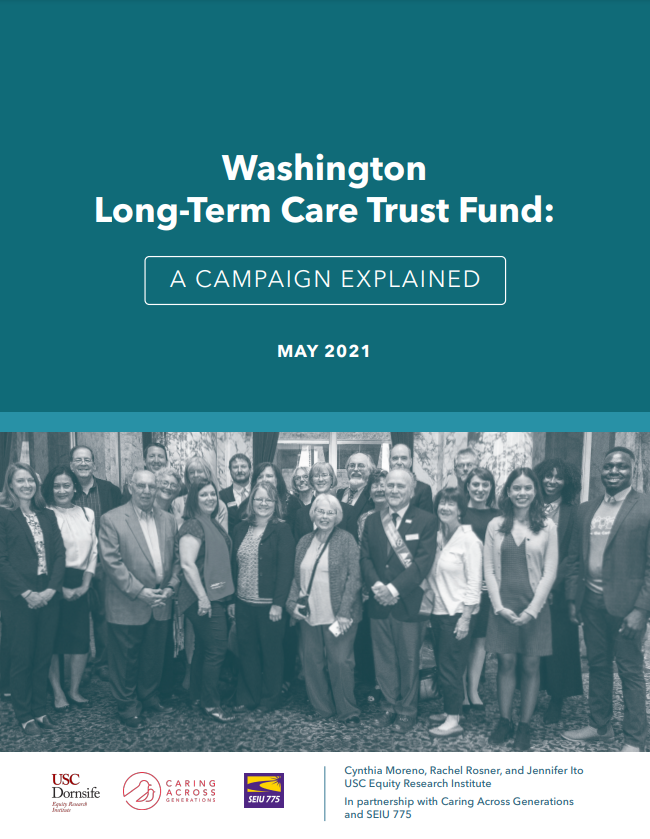
Washington Long-Term Care Trust Fund: A Campaign Explained
May 2021
Cynthia Moreno, Rachel Rosner, and Jennifer Ito, USC Equity Research Institute in partnership with Caring Across Generations and SEIU 775
The passage of the Long-Term Care (LTC) Trust Act led by Washingtonians for a Responsible Future (WRF) gives hope to families struggling to afford to care for their loved ones. This impressive 2019 legislative win provides the nation a vision of what is possible when a dedicated group of stakeholders achieves meaningful change for those in need of long-term care support and services as it is the nation’s first publicly funded long-term care insurance program. The LTC Trust Act was the result of a ten-year effort led by WRF with the goal of ensuring that there is a viable, affordable long-term care system in place for caregivers and recipient families, long-term care services and supports providers, and advocacy organizations.
Other states have their eyes on this pioneering approach as the aging wave is a demographic reality nationwide. An increasing number of families throughout the country struggle with the costs of care for oneself and for loved ones. Medicaid covers only medical needs, not living supports like home health aides or nursing homes. Elders with low enough incomes—depending on the state, anywhere from $6,825 to $47,139 a year—qualify for Medicaid, which does cover nursing-home costs. Those with greater resources must first spend down their savings and assets in order to qualify. They also must demonstrate they have a need for nursing-home care. Some state Medicaid programs do not cover in-home care or cap the number of people who can access it.
This report is an attempt to share insights and lessons from Washington with those interested in long-term, sustainable, and publicly funded and operated solutions in their own state. In 2020, USC Equity Research Institute interviewed people who were deeply involved in the effort behind the LTC Trust Act about their experiences, knowledge, insights, and learnings. While there are aspects of the legislation—and the road to win it—that are uniquely Washingtonian, there are aspects that are relevant and applicable regardless of the particular conditions and capacities in one place. Our hope is that this report celebrates a hard-won victory and shares lessons that may shorten the number of years it takes to win similar, or improved, legislation in other states. The cumulative impact is intended to inform a meaningful and lasting federal solution that advances systems of care that are dignified and sustainable for the workforce, and are more supportive and accessible for all families.



